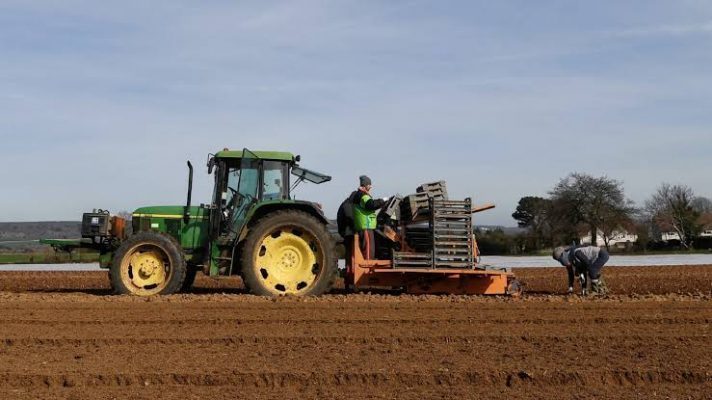By: Francois Rossouw Ceo of Saai
“Let us not forget that the cultivation of the earth is the most important labor of man. When tillage begins, other arts will follow. The farmers, therefore, are the founders of civilization.” – Daniel Webster (American statesman: 1782 – 1852).
After almost two centuries, this adage still rings true. Civilisation simply cannot exist without food, which is why the world will always need farmers. In fact, it is estimated that the world’s population will reach nearly 10 billion people by the year 2050. This means that we will have to produce almost twice the amount of food that we currently do while navigating the challenges of nutrition, poverty and unsustainable levels of mass migration that could potentially overburden urban centres and communities.
Family farmers occupy an estimated 70-80% of occupied farmland and produce more than 80% of the world’s food in value terms. Furthermore, family farmers are the foundation of small towns and anchor rural economies and communities. While producing nutritious food to those who live in cities, family farmers also provide much-needed employment to local communities and curb unsustainable levels of migration.
In light of these projections, the United Nations and its subsidiaries have realised that family farmers are in the best position to address these issues. However, they require the necessary support from governments, civil society and relevant legislative bodies to craft pro-family farming policies that are more sensitive to the realities that family farmers face daily. As a result, the United Nations Decade of Family Farming 2019-2028 (UNDFF) was launched on 29 May 2019 in Rome, Italy, and serves as the framework to promote the interests of family farmers.
The task ahead is enormous – we cannot expect family farmers to rise to the challenge of addressing some of the greatest global challenges if they are not able to practise their vocation in an environment that is safe and conducive to growth and continued production. That is why the Southern Africa Agri Initiative (Saai) has launched the Protection of Family Farmers Resolution (the resolution). This draft resolution condemns any form of violence, or incitement thereof, against family farmers and calls on all state parties to proactively monitor, inhibit and prevent crimes against family farmers.
Earlier this year, Dr Theo de Jager, board chairman of Saai, pointed out that violence against South African family farmers is unique in a number of ways. He said murders of family farmers are far more brutal than other murders committed in the country. The motives for these murders are mostly unknown, apart from their vocation that makes farmers more vulnerable in rural areas. The social and even political environment is ambivalent to these acts and in some instances the attacks are even encouraged and celebrated on social media. The youth are the future of family farming, and violence against family farmers also risks deterring future generations from rising to the challenge.
Saai will meet with representatives of foreign governments and farmers organisations from all over the world in the coming year with the goal of tabling the resolution at the UN General Assembly in September 2020.
We need to encourage a new generation of family farmers to rise to the challenge of feeding an ever-growing population, but we cannot expect this of them at the expense of their lives or those of their families. That is why we call on all family farmers, friends of family farmers and consumers to add their voice to the resolution at www.farmersresolution.org. Let us never forget our dependence on the cultivators of the earth, and the founders of our civilisation, and let us come together to help give family farmers the support and credit they deserve








